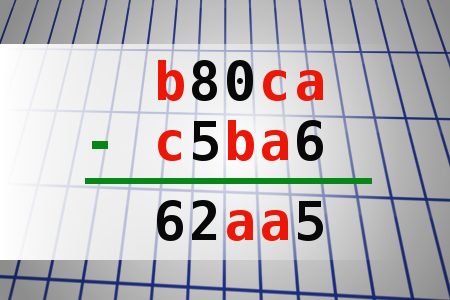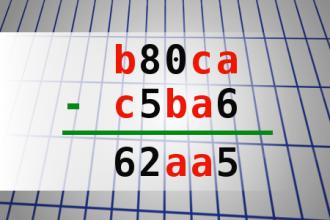Find number abc
If b80ca - c5ba6 = 62aa5 find number abc. Multiple solutions may exist.Correct answers: 31
The first user who solved this task is Nasrin 24 T.
#brainteasers #math

A man and his dog walk into a...
A man and his dog walk into a bar. The man proclaims, "I'll bet you a round of drinks that my dog can talk."
Bartender: "Yeah! Sure ... go ahead."
Man: "What covers a house?"
Dog: "Roof!"
Man: "How does sandpaper feel?"
Dog: "Rough!"
Man: "Who was the greatest baseball player of all time?"
Dog: "Ruth!"
Man: "Pay up. I told you he could talk."
The bartender, annoyed at this point, throws both of them out the door.
Sitting on the sidewalk, the dog looks at the guy and says, "or is the greatest player Mantle?"
Bartender: "Yeah! Sure ... go ahead."
Man: "What covers a house?"
Dog: "Roof!"
Man: "How does sandpaper feel?"
Dog: "Rough!"
Man: "Who was the greatest baseball player of all time?"
Dog: "Ruth!"
Man: "Pay up. I told you he could talk."
The bartender, annoyed at this point, throws both of them out the door.
Sitting on the sidewalk, the dog looks at the guy and says, "or is the greatest player Mantle?"

